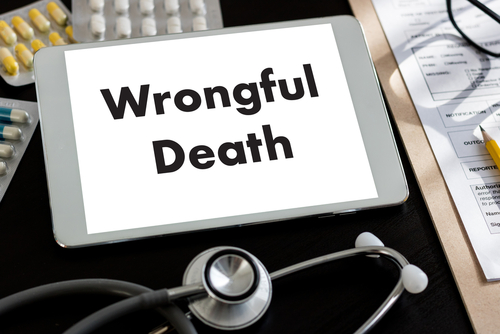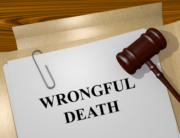The financial damages you can collect for a successful wrongful death lawsuit in Florida will depend on the facts of your case, including your relationship to the decedent. You must be an eligible survivor to recover wrongful death damages in Florida. The deceased person’s estate can pursue compensation for the financial loss that the premature death caused to the value of the decedent’s estate.
Damages for Qualified Survivors
According to FL § 768.21, all eligible survivors can go after money damages for the loss of the decedent’s support and services for two separate blocks of time:
- From the moment of injury until the death
- For the future
In other words, if the person who died because of the negligent act of another was unable to work after the injury, the eligible survivors who were financial dependents did not receive the benefit of the deceased person after the injury. Let’s say that the person who eventually died was the mother of three young children. The mother worked full-time and contributed significantly to the financial viability of the household.
Damages from the Injury to the Death
After a severe car crash, the mother was in the intensive care unit (ICU) of the hospital for a week until she died. During that week, she was unable to work and provide a paycheck to cover the mortgage, utilities, groceries, or other household expenses.
Also, during that week, she could not take her kids to school, cook their meals, help them with their homework, play with them, or perform the multitude of other tasks and activities she usually did. The family suffered a financial loss as well as noneconomic losses during that week. The qualified survivors can seek wrongful death damages in Florida for these losses from the period between the injury and the death.
Florida law allows the survivors to receive interest on this amount. This provision removes one incentive that the liability insurer of the defendant might have to delay the case. The meter will be running, and building up interest, until the defendant pays.
Future Damages
Going forward, the eligible survivors will not have the benefit of the decedent’s financial support from the moment of death on into the future. Those survivors will also miss out on the services the deceased person performed for the family and the companionship and enjoyment of having that person in their lives.
Florida law will reduce the total amount calculated for future lost earnings and services to present value. For example, if the decedent earned $80,000 a year and, due to her life expectancy but for her wrongful death would have likely worked for another 25 years, you cannot merely multiple $80,000 by 25 to get the total lost earnings.
Receiving money years earlier than the deceased person would have earned the funds has value in addition to the dollar amount. For example, a lottery winner can take the payout over many years or take a smaller lump-sum payment.
Also, the judge will consider how long any minor children would remain as financial dependents. The relationship of the individual survivor to the decedent can affect the amount of compensation the court distributes to that person.
An interesting wrinkle in the damage award distribution is how Florida law treats surviving spouses who remarry before the resolution of the wrongful death case. The judge can admit evidence of remarriage and consider the remarriage when apportioning the award among the survivors. However, the remarriage does not automatically disqualify the surviving spouse from receiving compensation.
Additional Damages for Particular Survivors
Different categories of eligible survivors might receive money damages in addition to the loss of support and services of the decedent.
- Surviving spouses can seek damages for loss of the protection and companionship of the decedent and for mental pain and suffering.
- Surviving minor children (or adult children if there is no surviving spouse) can go after compensation for loss of parental instruction, guidance, and companionship. These legal beneficiaries can also seek to recover for their mental pain and suffering.
- When a minor child dies, the parents can pursue financial damages for mental pain and suffering. If there are no other survivors, the surviving parents of a deceased child can seek compensation for those damages.
The Decedent’s Estate and Damages
The estate of the decedent theoretically suffered a financial loss because of the deceased person’s untimely death. The estate can go after the earnings that the decedent likely would have earned but for the wrongful death. The court will reduce these wrongful death damages in Florida to present value. Also, whoever paid the decedent’s final medical expenses and funeral and burial expenses can get reimbursed for those expenditures.
The Deadline to File a Wrongful Death Claim in Florida
The statute of limitations, or the amount of time you have to file a lawsuit, for wrongful death in Florida under § 95.11 is two years. If this time slips by and you have not reached a settlement, you will lose the right to go after financial damages for yourself and your family for the loss of your loved one. Be sure to call the Montero Law Center right away so that you do not lose your right to compensation.
Getting Legal Help for a Florida Wrongful Death Case
When you lose a close relative, there is a hole in your life. Money can never replace the person you lost, but you and your children should not become destitute because someone else’s careless act took the life of your loved one.
We have a reputation for treating our clients with respect and compassion at Montero Law Center. We will work hard to get you all the compensation that you deserve.
You can focus on helping your family and yourself through this period of grief because we can take care of the rest. You should not have to fight a legal battle at a time like this.
You will not have to pay upfront legal fees for us to handle your wrongful death case. Our legal fees will come out of the settlement or award at the end of the matter. Call us today at (954) 767-6500 for a free consultation.
 English
English  Español
Español 



